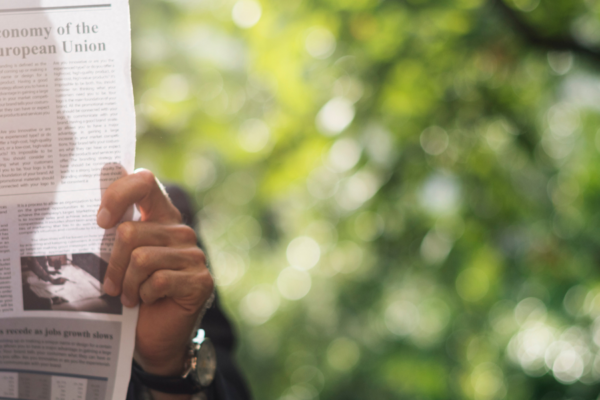Your brand and values are the biggest assets in any crisis, yet market uncertainty poses new challenges for businesses as traditional approaches to strategy are scrapped. In a recent Forbes article, our founder and president, Kathleen Lucente, talks about having the A-team in times of crisis.
Going back to your brand values and what you stand for can guide you through the chaos. We are now in a moment of massive strategic shifts and rescheduling. Companies that are already pivoting can provide inspiration.
Here are five industries shaking up the way they work to stay relevant:
FINANCIAL SERVICES
Mobile and digital banking apps are seeing spikes of interest as they help people bank remotely.
According to American Banker, IncredibleBank in Wausau, Wisconsin, has seen an “off-the-charts” increase in adoption of its digital assets despite closure of the lobbies of 15 of its branches. They’re seeing customers pull money from the stock market and move it to virtual savings accounts.
Digital mortgage software provider Blend saw a sharp spike in usage—up 1500 to 2000 percent year over year. Growing too fast poses its own risks; online help applications and customer calls are also increasing. Implementing additional support desk staff is imperative to monitor inquiries.
RETAIL AND CPG
Concerns of increased exposure have caused more than 90 major retailers to temporarily close. Grocery stores try to adapt by altering hours, doing deep cleans or implementing longer restocking periods. Others must shift their product lines entirely to survive.
Tito’s Handmade Vodka, which previously had worked hard to explain why vodka isn’t an appropriate substitute for hand sanitizer, is now revealing plans to manufacture its own hand sanitizer. It plans to make 24 tons of hand sanitizer over the upcoming weeks and give it away to those who need it the most.
While many retailers are seeing diminished sales, warehouse clubs, grocery and drug stores have consumers stocking up on essential items. This has fueled an uptick in sales at stores like H-E-B that are, in response, hiring lots of new staff, donating to local nonprofits and supporting coronavirus research.
Clothing stores are seeing the most loss after closing their doors during the shelter-in-place order. Local boutique Beehive isn’t letting this get them down. Instead, they’re going to Instagram and sharing pictures of everything on the rack. If you see something you like, call or text to have the product delivered straight to your door.
EDUCATION
Digital and virtual learning programs were already on the rise prior to social distancing, and it’s only continuing to grow stronger. Virtual collaboration tools like videoconferencing and cloud-based document sharing have expanded the education technologies’ audiences to include an entirely new audience, with tools like Zoom being blended into the everyday educational experience.
Other educational apps are expanding their audiences. Caribu, originally marketed as the No. 1 app to call your grandparents, is now shifting its focus to setting up virtual playdates. Caribu allows families and friends to connect through video calls to read books, draw and learn together in real time. The service is usually $7 per month, but is now free to support families throughout the COVID-19 crisis.
HOSPITALITY
The service industry is hit hard by challenging times as restaurants and hotels shutter and workers lose their source of income. At the same time, we’ve seen the community come together, supporting GoFundMes for restaurant staff, gift card campaigns and more.
Restaurants are finding new ways to make ends meet. They’re turning servers into deliverers, reinventing their to-go options and creating new ways to provide alcohol for takeout, like in Texas.
Locally in Austin, Juliet Italian Kitchen & Intero are using similar practices with added innovation. Juliet Italian Kitchen is inspiring at-home mixology education with its popular Aperol Spritz Kits, while the chefs at Intero are offering exclusive in-house cooking programs via Skype.
With global travel now at a standstill, some governments are looking to hotels to alleviate stress on the health care system. In response, Chicago plans to use thousands of hotel rooms through partnerships with five hotels to relieve pressure on hospitals by allowing ambulatory patients to stay there, allowing them to focus on critical patients.
HEALTH AND FITNESS
One of the quickest industries to see spikes in new customers has been the fitness industry. To stay connected to customers, they’ve created new services, shifted how they deliver products and replaced in-person appointments with video calls.
Online classes make sure customers can still be active while social distancing, and many companies are offering these digital classes in different ways. Crux Climbing Center’s instructors are live-streaming classes from home so training can continue despite quarantine. These climbing, yoga and HIIT classes keep you moving from the comfort of your home and allow the entire family to get involved.
Other health and fitness companies have stepped up to take care of a community at home in other ways. Fitbit Premium is extending its free trial to 90 days to allow new users to access its premium content, including guided programs to build healthier habits and mindfulness tools.
People want to keep fit and support their local studios and gyms, so it’s key for these businesses to use digital marketing and constant communication to keep clients informed.
Red Fan is working to bring you the best resources and information to help you navigate this challenging time. We’re here to support you.
Let us know how we can help.






